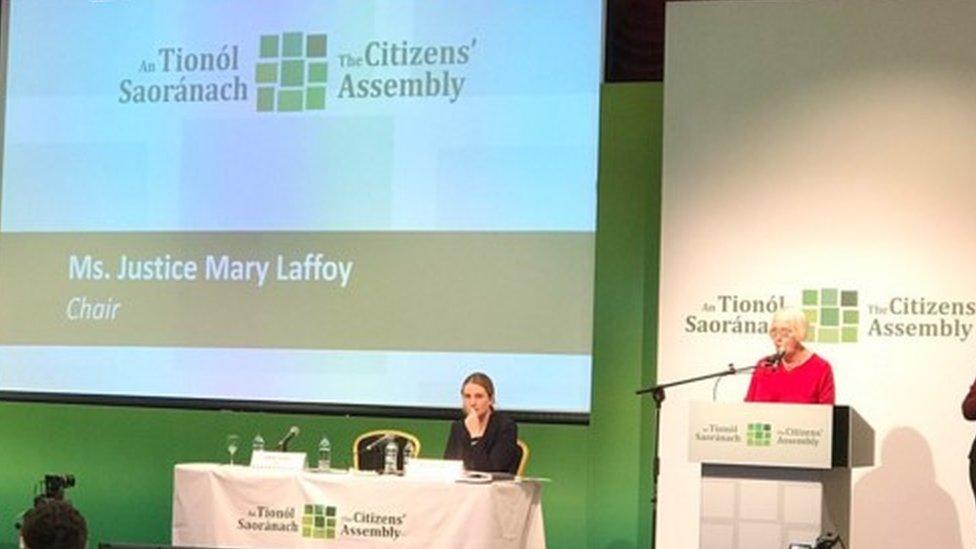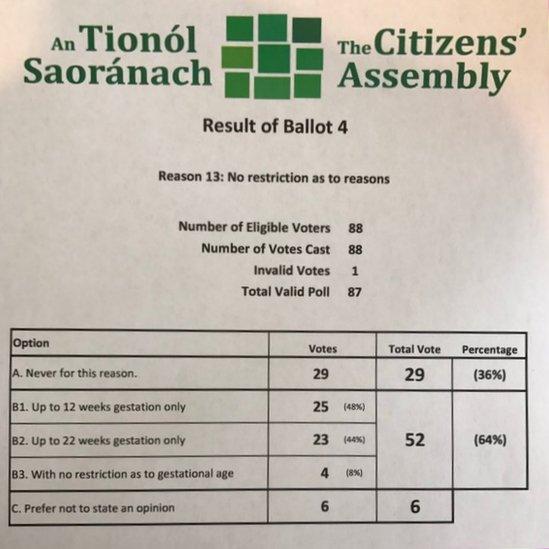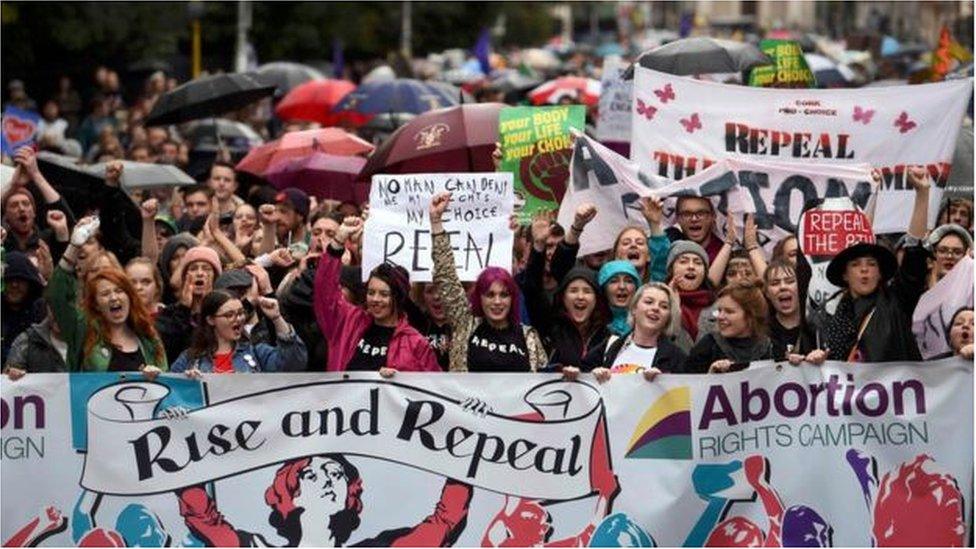Irish abortion law: Citizens' Assembly recommends unrestricted access to terminations
- Published

The Citizens' Assembly is chaired by the Supreme Court judge, Ms Justice Mary Laffoy
A public forum that advises the Irish government on constitutional issues has voted to recommend the introduction of unrestricted access to abortion.
A woman can only have an abortion in the Republic of Ireland if there is a serious risk to a woman's life.
The Citizens' Assembly voted 64% to 36% in favour of having no restrictions in early pregnancy.
Anti-abortion groups have condemned the result of the vote, but any change to the law would require a referendum.
'Equal right to life'
The Citizens' Assembly was set up by the Oireachtas (Irish Houses of Parliament), external to advise elected representatives on a number of ethical and political dilemmas facing the Irish people.
These include abortion, climate change and how the Republic of Ireland deals with the challenge of providing for its aging population.
The body is made up of 99 members who were chosen at random to broadly represent the views of the Irish electorate.
Its most controversial task was to consider a campaign to repeal the Eighth Amendment of the Irish Constitution - which gives an equal right to life to a pregnant woman and an unborn child.

One of the ballots asked members if they supported unrestricted access to abortion
Assembly members held 10 days of intensive and emotive debates over the past five months, culminating in this weekend's series of votes.
On Saturday, members voted against repealing the Eighth Amendment, but they did support change - voting to amend or replace the law.
On Sunday, a majority of Citizens' Assembly members approved 13 separate grounds for legal terminations in the Republic of Ireland.
Of the votes cast, 89% were in favour of allowing abortion on grounds of rape or fatal foetal abnormality - when doctors believe an unborn child is likely to die before, during or shortly after birth.
'Confused farce'
There was less support for legal terminations for "socio-economic reasons" but still, 72% of members who took part voted in favour of abortion in those circumstances.
However, anti-abortion campaigners dismissed the results of the ballots as a "muddled and confused farce".
Cora Sherlock of the Pro Life Campaign accused the assembly of having a "chaotic" and "one-sided approach" in how it conducted its business from the beginning.
She added: "There is nothing liberal or progressive about the assembly recommending a referendum to strip unborn babies of their right to life in law and also ignoring the negative consequences of abortion for women."
The Citizens' Assembly is chaired by the Supreme Court judge, Ms Justice Mary Laffoy, who will now present a report on members' recommendations to the Oireachtas by late June.
'Dissenting voice'
In a statement, the chair said members had "reached a conclusion of sorts" and she thanked them for having "engaged with some of the most complex pieces of legislation, immersed themselves in medical and ethical discourse, and listened with respect to the voices and opinions of others".
"I also wish to acknowledge those whose perspectives or opinions did not emerge in the final vote," the judge added.
"This is an exercise in deliberative democracy and their vote remains important to me because of the very fact it captures that other perspective, that dissenting voice, the different interpretation and I wish to assure them that their votes and voices will be recorded and have a place in the report."
On receipt of her report, elected representatives will consider members' calls for a change in the law, and whether or not to hold a referendum.
- Published22 April 2017
